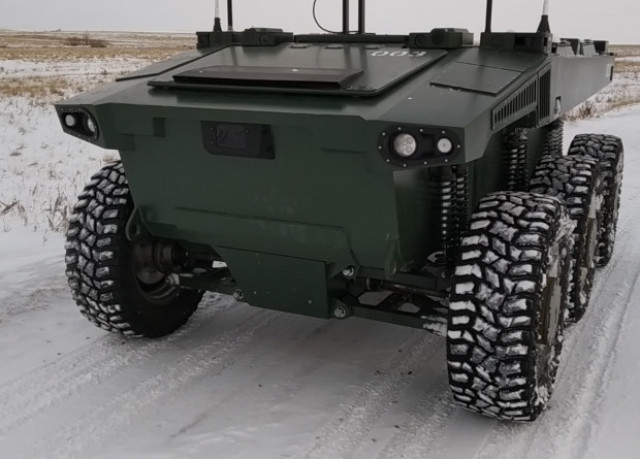Russian developers have tested the universal platform of combat robots "Marker" in a completely autonomous mode. According to the message During the tests, the platform covered 30 kilometers of snow-covered forest-steppe. The tests were conducted in the Chelyabinsk region and were recognized as successful.
The platform of combat robots "Marker "has been developed since the beginning of 2018 by the company"Android technology". The robot is created on a modular basis, so that it can quickly replace the payload and surveillance systems. In addition, the modular scheme will allow you to upgrade the robot.
Various payload modules can be installed on the "Marker", including a module with an optoelectronic detection and surveillance system, which has six independent degrees of rotation. This module can be equipped with various types of small arms, grenade launchers and missiles.
The platform can be equipped with a cluster module for launching drones. It allows you to launch a small group of drones that can act both together and separately. The vehicles and the ground platform can exchange targeting data and information about detected objects.
When driving in rough terrain or urban development, the Marker multispectral vision system collects information about all moving and stationary objects at a distance of 100 meters. This data is used for automatic routing and route adjustment.
During tests in the Chelyabinsk region, "Marker" with the help of a technical vision system reached the point set by the operator in an hour and a half. At the same time, the robot's autonomy when driving on rough terrain is 24 hours, and on paved roads — 48 hours.
Now the developers intend to conduct another series of tests, during which the robot in fully autonomous mode will overcome routes with a length of 50, 100 and 200 kilometers.
In the summer of 2020, the Russian Defense Ministry announced a tender for the development of ground-based robots that could be used to evacuate the wounded. The development will be carried out within the framework of the project "Evacuation-R".
Vasily Sychev

